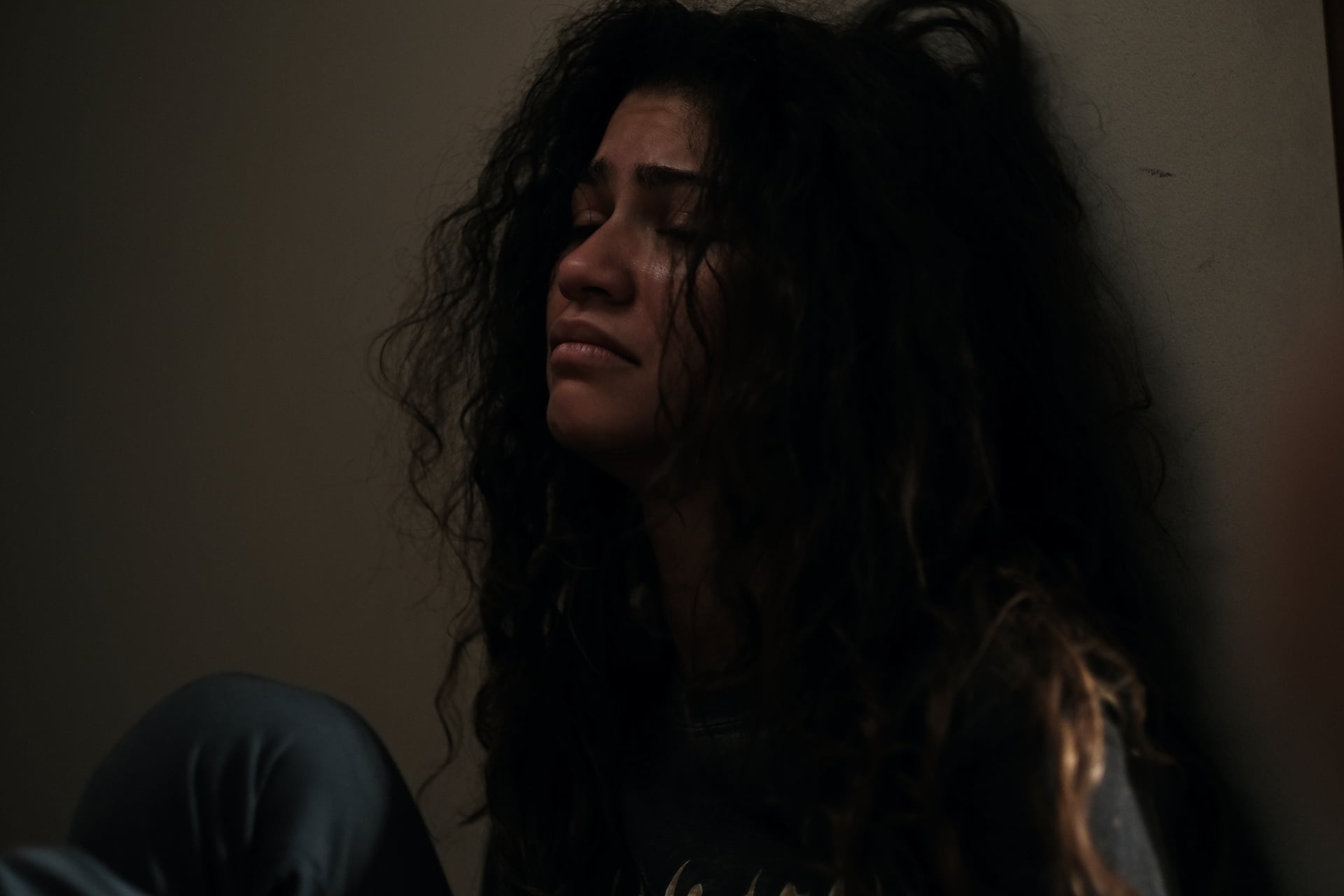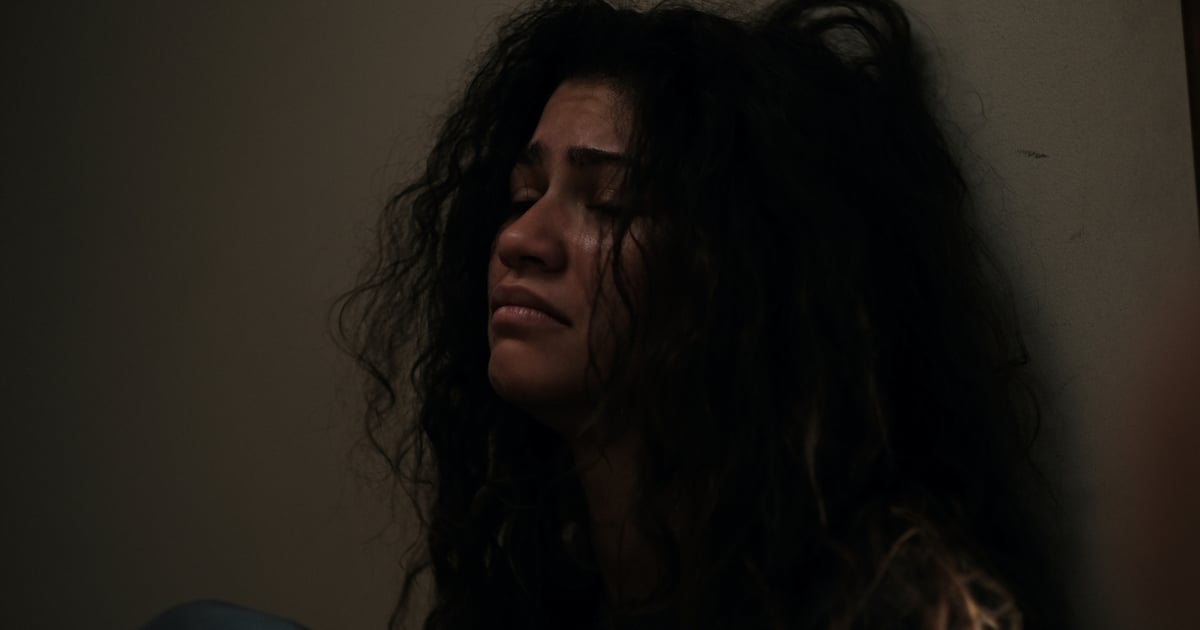Products You May Like

In almost every episode of “Euphoria,” it seems like Rue (Zendaya) falls deeper and deeper into addiction. After using drugs as a coping mechanism after her dad’s death — and overdosing while at home with her younger sister, Gia — Rue’s addiction only grows worse in season two. Although she is seemingly on a better path by the finale, Rue still has a long journey ahead of her.
While season one of the show introduces Rue’s drug use, it isn’t until season two — when Rue begins experimenting with harder drugs and even selling them — that we see the extent to which her addiction is ruining her life. Like so many others struggling with substance use disorders, Rue is uncooperative much of the time, leaving her mom, sister, and friends scared and unsure of how to help.
For anyone who has been around addiction, “Euphoria” paints a terrifying yet realistic picture. The show’s creators worked with experts who treat substance use disorders to craft this story as accurately as possible. By many accounts, the raw and painful struggle that we see Rue endure throughout the series is a blindingly accurate look at what millions of people are going through every day. POPSUGAR spoke with mental health experts to get their take on the show’s portrayal of addiction, as well as guidance for those dealing with it in real life.
How “Euphoria” Effectively Depicts Addiction
Jessica Steinman, LMFT, CSAT, addiction consultant and clinical director for Westwind Recovery, helped craft the gritty portrayal of Rue’s addiction on “Euphoria.” Steinman played a huge role in making sure the show stayed true to the challenges people face when battling addiction.
To make sure this was all done accurately, Steinman called on her own experiences working with people struggling with substance use and shared those with show creator Sam Levinson as scripts were created. Steinman says the team was open to her feedback, even throwing out parts of the script that didn’t align with her guidance.
“There is nothing glamorous about withdrawal or addiction. It stops becoming a choice once someone is dependent and they need professional help to stop.”
“Many shows and movies have stereotypical ‘Hollywood-esque’ symptoms like shivering in a corner and vomiting when showing someone that has stopped using drugs suddenly, but Sam [Levinson] wanted Zendaya to know the specific nuances and struggles of an addict,” Steinman tells POPSUGAR. “I was sent the scripts and Sam, Zendaya, and I sat down to discuss certain physical actions she would take to show how her body would feel and discussed how an addict’s mind can work differently, especially in the desperation and pain of withdrawal. For example, when she is going into a house to steal from strangers, she wouldn’t go to the jewelry or look for money. Someone struggling with addiction is going to go straight to the medicine cabinet and see if there are any pills that can hold them over if they are having high cravings.”
While organizations like D.A.R.E. have called out “Euphoria” for glamorizing drug use, especially this season, addiction specialists largely disagree with this sentiment. “Like all mental health disorders, substance use disorders occur along a spectrum,” says Jennifer Kowalski, a licensed professional counselor at Thriveworks in Cheshire.
“There is nothing glamorous about withdrawal or addiction,” Kowalski explains. “It stops becoming a choice once someone is dependent and they need professional help to stop. For someone like Rue, whose family is not wealthy and has had issues getting insurance to cover her care, she has to not only consider cost, but also admit to herself and the people who love her that she has relapsed and let them down. This is hard for anyone, but especially an adolescent who is from a family that is already grieving the loss of her father.”
“I think it’s irresponsible to only show active addiction and not at least show opportunities and hopeful experiences of recovery.”
And what is perhaps most accurate about how “Euphoria” presents Rue’s addiction, is how human they’ve kept her character throughout the series. There’s so much stigma surrounding drug use, and the show runners haven’t shied away from this. “The show makes us care for and feel for Rue even when we don’t like or agree with her behaviors,” says Michael Damioli, LCSW, CSAT, clinical director at Colorado Medication Assisted Recovery (CMAR). “This is the difficult part of caring for someone with an addiction that is important not to forget.”
Damioli also notes that by utilizing the character of Ali (Colman Domingo), Rue’s sponsor, the show is able to ground the addiction in reality. Ali is a confidante who understands what Rue’s going through and can help guide her to recovery, while providing an example of what comes after addiction. By the end of season two, Rue seems to be more determined than ever to try to stay sober.
“My only real hope is that they continue to show accurate representations of recovery and hope,” Damioli says. “I think it’s irresponsible to only show active addiction, and not at least show opportunities and hopeful experiences of recovery.”
Steinman is also proud of how this storyline has been crafted on the show, and points to Levinson himself as the reason for that. “Sam is a recovering addict himself, and has been very open about that,” she shares. “He believes in showing all aspects of addiction and a person’s struggle no matter how dark, ugly, or gritty it can seem.”
She added that the show calls out all these tough aspects of addiction and withdrawal accurately, and that’s perhaps why it’s so hard for some people to watch.
What You Need to Know About Addiction and Withdrawal
While “Euphoria” does give a real look at what addiction and withdrawal can be like, it’s still TV: everyone experiences these things differently. Addiction and recovery is painful, hard, and often times leaves a permanent mark on people’s lives.
“What I see at Westwind Recovery on a daily basis are those having to fight the stigma that struggling with addiction has in our society,” Steinman says. “People in rehabs and treatment centers may feel like they are looked down upon, and I wish we would have more praise for people fighting and doing the work to get and stay sober.”
The first step is open communication and seeking help. It can be hard to do, but experts urge those struggling with substance use to be open to professional help, as it is the best way to recover. “Addiction likes to live in secrecy and shadow,” Damioli says. “The more you talk about it and ask for help, the better opportunities you will find for recovery.”
“People in rehabs and treatment centers may feel like they are looked down upon, and I wish we would have more praise for people fighting and doing the work to get and stay sober.”
But just as it’s hard to experience addiction and withdrawal yourself, it’s hard to support a loved one going through it, too. “Give your loved one the resources to get the help they need, and know that there is nothing you can do other than standing by and loving them with boundaries,” Kowalski tells POPSUGAR. “Know that you can continue to love someone, but not love their actions.”
While you’re showing support the best you can, it’s important not to feel guilty, which is common among those whose loved ones are battling addiction. “Many friends and family members feel guilty that they may have caused or contributed to someone’s addiction,” Damioli says. “This guilt should be set aside as they work together to focus on recovery.”
Best Resources For Addiction Recovery
Addiction, withdrawal, and recovery are difficult, but with a support system and a willingness to get better, substance use disorders can be overcome. Whether you’re dealing with addiction, or know someone who is having a hard time staying sober, experts recommend finding professional help and peer support. Damioli points out that not all mental health professionals are trained to treat substance use disorders, so finding the right professional is also important.
Alcoholics Anonymous or Narcotics Anomyous meetings are also great places to start, as each offers a safe space to discuss addiction, along with peer guidance on getting sober. The Substance Abuse and Mental Health Services Association is also an excellent resource for those struggling with addiction, as well as their loved ones. The hotline can connect you with local support groups, treatment facilities, and organizations available to help. You can call 24 hours a day, seven days a week, 365 days a year.
Damioli also suggests that people dealing with addiction take caution when watching a show like “Euphoria,” as it can be triggering. “Most Americans have some experience with addiction, whether it’s a family member, friend, or themselves personally,” he says. “If you feel dysregulated by watching ‘Euphoria,’ it’s good to find support in a loved one or a professional, and to practice healthy coping skills such as deep breathing, meditation, prayer, exercise, or whatever you do to feel grounded and safe.”
If you or someone you know is in need of drug-related treatment or counseling, you can reach the Substance and Abuse Mental Health Services Administration (SAMHSA) on its Treatment Referral Routing Service helpline at 1-800-662-HELP (4357).
